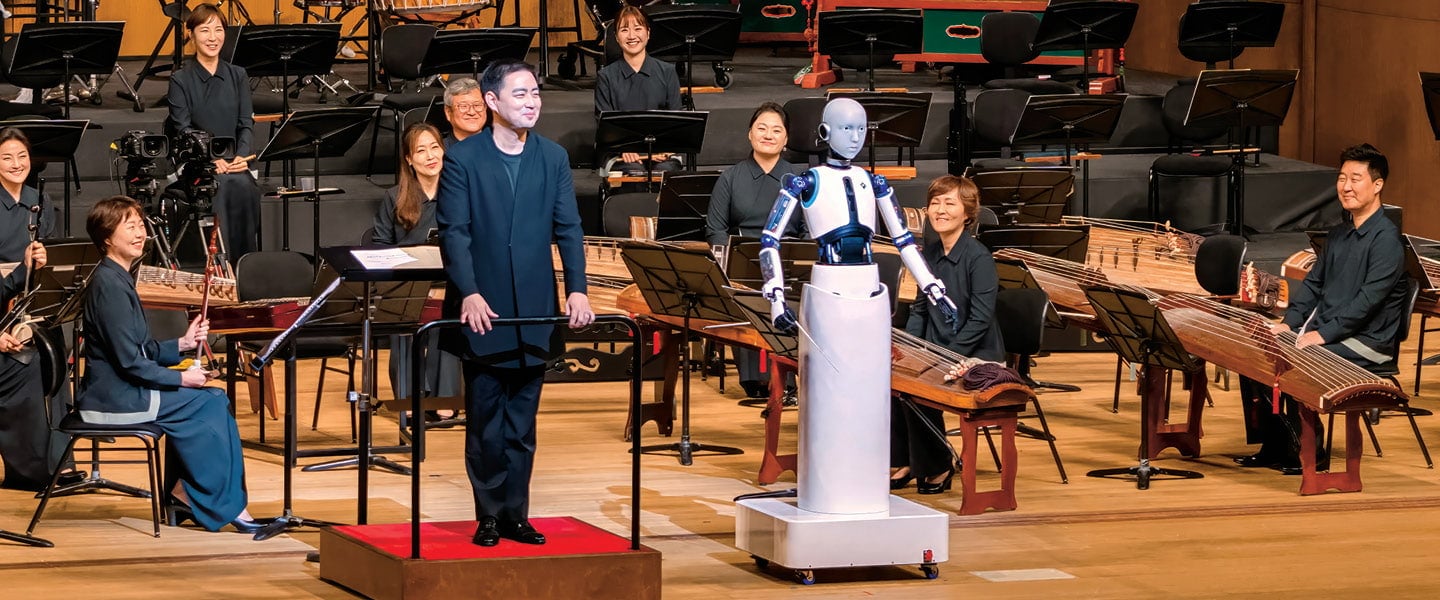Jim McMahon
One evening in June, South Korea’s national orchestra took the stage in Seoul, the capital. At the conductor’s podium, a humanlike robot known as EveR 6 bowed to the audience and began waving a baton to guide the musicians through three pieces. Principal conductor Choi Soo-Yeoul, who was also onstage, was impressed by the robot’s detailed movements, which he says are essential for conducting an orchestra. EveR 6 doesn’t use artificial intelligence like ChatGPT; instead, its movements are programmed to help the musicians keep the tempo. This was the first time a robot led a performance by the orchestra, and overall, the audience seemed to respond positively. But because EveR 6 can’t listen to the music and adjust its movements accordingly, Choi doesn’t believe that robots will completely take over as conductors. He thinks they’ll more likely be a helpful tool. The concert “showed [robots and humans] can co-exist and complement each other,” he told Reuters, “rather than one replacing the other.”

